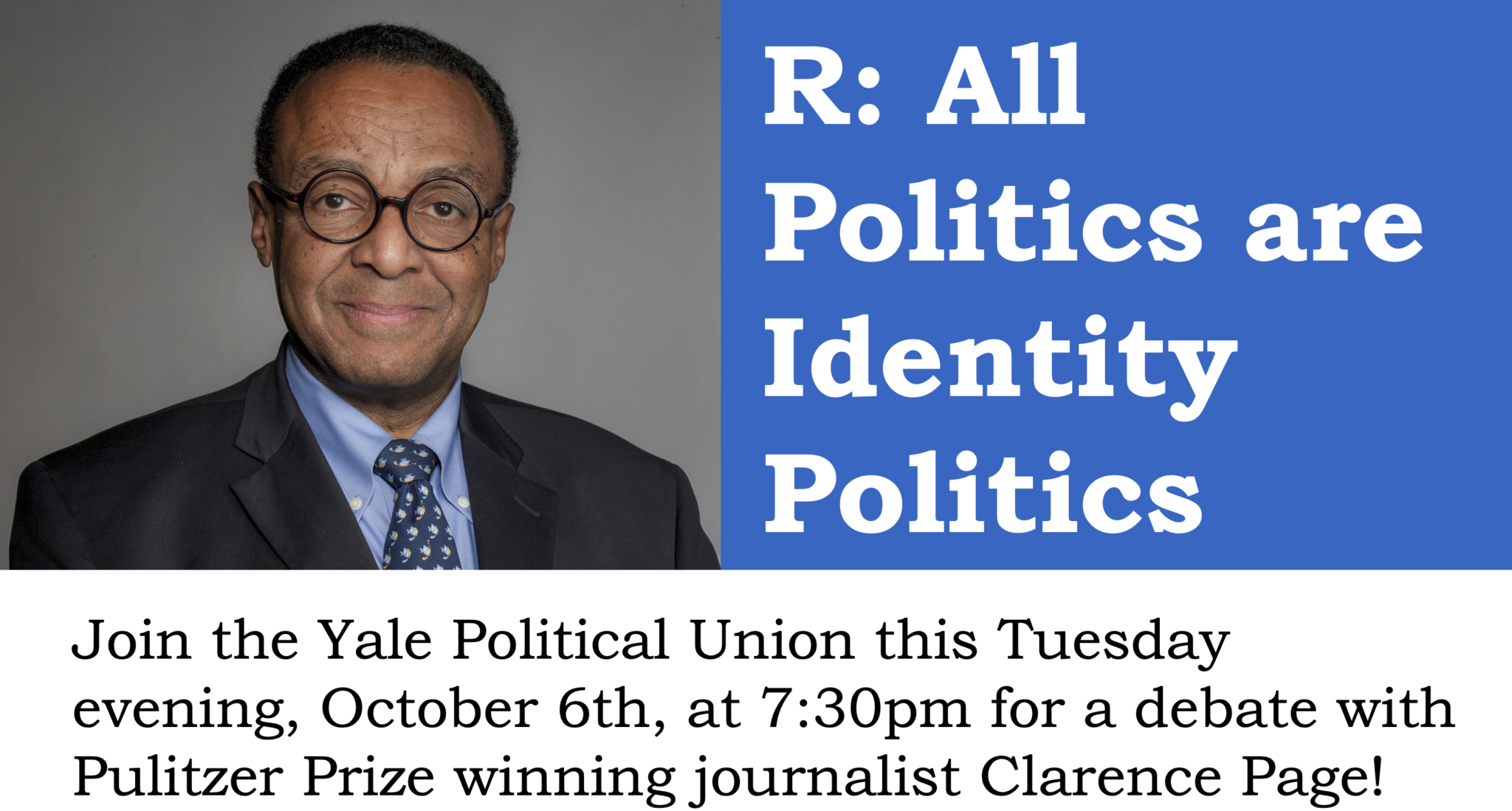
Courtesy of the YPU
Clarence Page, a two-time Pulitzer Prize winning journalist and senior member of the Chicago Tribune Editorial Board, joined the Yale Political Union this Tuesday to debate the topic of identity politics.
At the Zoom event with 39 attendees, Page debated in the affirmative on the proposition “all politics are identity politics.” Page’s thesis? Identity and politics are inseparable, not just from each other but also from American history. As is the norm for YPU debates, Page’s speech was followed by a number of questions from attendees and then speeches from members of the various parties in the Union.
“In a…Mulligan stew, the elements won’t melt,” said Page, referencing his own analogy to contrast with the common “melting pot” metaphor for American society. “Each [element] maintains its flavor…Each contributes to the flavor of the pot and they never completely melt away. That to me is the beauty of American diversity.”
In his defense of identity politics, Page proposed that “we should not be blaming identities.” Instead, he said, blame the politics.
Page made an appeal to Civil War history in order to demonstrate the prevalence and power of “bad” identity politics — which can be found in the roots of the Civil War, he said, referencing the Southern nationalism of the time.
“In our own crazy, mixed up, but still remarkably hopeful — in my view — history, we have the ingredients of our own improvement,” Page said. “It takes a while to change the public consciousness and even longer to move the public to action…In America, sooner or later, justice is going to happen.”
In arguing that identity politics is practiced by people and parties across the political spectrum, Page said that the Republican Party is just as engaged in identity politics as its Democratic counterpart, but that Republicans prioritize white Americans.
Page argued that the best of identity politics and American diversity can be found in cities.
“That’s where you have the real dynamism of American society,” Page said. “The kind of dynamism that has helped us to grow, trying to learn how to live with each other. You find people forming coalitions — political or otherwise — to get things done, to have a presence in the land.”
To support his idea that forming around identities is natural, Page gave the example of a story he had been told by a professor who walked into a dining hall and saw how the students segregated themselves by race and gender.
The professor saw one table with a “rainbow of race and ethnicity,” only to realize it was a group of hearing-impaired students who were talking with one another in sign language.
“I always tell this to freshman students: that it’s okay to seek out people who were just like the folks you left back at home,” Page said. “Because you want some comfort zone when you’re in this new environment. But the longer you’re here, the more you need to meet people who aren’t like you. That’s how you grow…That’s what university is supposed to be about.”
Page said that he was inspired to pursue identity politics after witnessing a political leader denounce that very topic, although that politician had relied on identity throughout his political career. Page called this “sour grapes” and a response to the fact that people of color were leaving the Republican Party. According to Page, this reaction of “waging war” against those who left is “what I see Donald Trump doing now.”
Page ended his speech by returning to the immediate present and the upcoming presidential election.
“This election is a test of what is the future of identity politics,” Page said. “The good side and the bad side of it.”
In an interview with the News, YPU President Jeff Cieslikowski ’22 explained that they have been hosting debates in this format every Tuesday this semester. Previous debates this semester include, “Resolved: Institute Gender Quotas for Tenured Professors” with expert on higher education and author of Yale Needs Women, Anne Gardiner Perkins and “Resolved: Sanction Saudi Arabia” with NBC Chief Foreign Correspondent Richard Engel.
Speaker of the YPU McKinsey Crozier ’22, who is also a staff columnist for the News, said that compared to a normal year, attendance to YPU debates has remained the same. Cieslikowski said that attendance can range anywhere from 30 to 150 people, but that due to the virtual nature of these events, people are able to come and go throughout.
Shifting the debates online is “mostly a struggle of format” for the YPU as it is a relatively structured event. Still, the typical actions of “taps” and “hisses” to indicate approval and disapproval, respectively, of speakers’ words translated to the online format — with attendees writing “tap” or “hiss” in the Zoom chat. Crozier said that attendees are participating more in the online format than they do in person.
“The movement online has actually enabled more engagement from people across ideologies and backgrounds given, that there is not really a way to sit around and only talk to your YPU party, you have to engage more substantially with people from across the different parties,” Crozier said.
The YPU has also not seen any change in or disruption to the roster of speakers for this semester given that it had determined the semester in advance. However, Crozier suggested that the move to online debate has enabled the YPU to host a number of more high-profile speakers for the upcoming spring semester.
The list for next semester’s speakers will be announced at the end of the fall semester.
Philip Mousavizadeh | philip.mousavizadeh@yale.edu
Isabelle Qian | isabelle.qian@yale.edu







